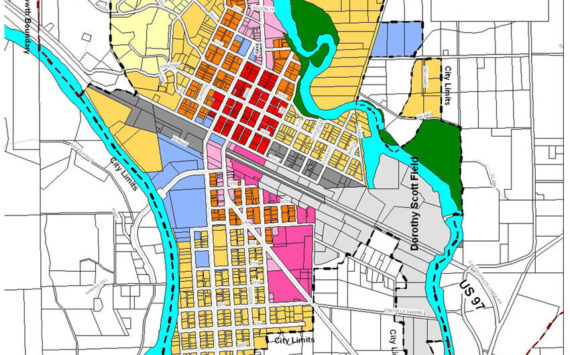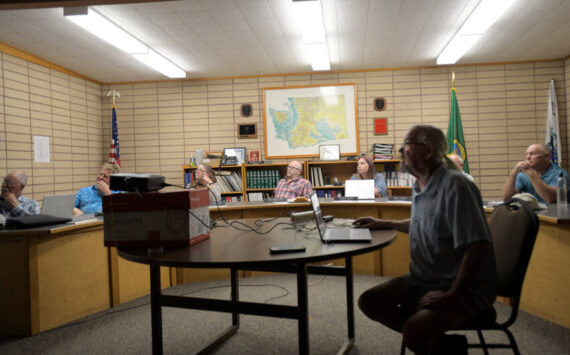“These are astounding overdose numbers for our county so far. We have a bigger problem in this county than most think”
Lauri Jones, Director of Okanogan County Public Health
County Health partners with CDC and state create new program
OKANOGAN – Okanogan County Public Health was recently awarded a small grant to create a program to make it easier for people to get information on localized services regarding opioids.
The grant was received in partnership with the Center for Disease Control and Prevention and the Washington 211 program. This grant has afforded Okanogan County Public Health to hire Timothy Hargraves as their Opioid Resources Outreach Coordinator. Hargraves is traveling throughout Okanogan County to share that by using ones cell phone and texting the word opioid to 898211 and entering your zip code, localized services will be sent to your cell phone.
“When texting the word opioid to 898211 you will be sent a text letting you know this texting platform is confidential and the information you share will not be given out,” said Hargraves. “You will then be asked to enter one of four numbers depending on what type of services you are seeking. #1 is for General Information, #2 for Concerned about someone using opioids, #3 is for seeking help for yourself and #4 if you are a treatment provider.”
Participants in this texting platform will continue to receive texts much like a “life coach” sending encouraging text to help with one’s recovery. Again, localized services will be sent to you that are available from where you live within Okanogan County, according to Hargrave.
“Currently Okanogan County is the only rural county in the nation providing this texting platform. It is our hope this service will help provide life saving information to concerned citizens, individuals in Okanogan County,” said Hargraves. “This silent epidemic of opioid use does not discriminate, it does not care what race, gender, age or what your income is. “
In October of 2016 Governor Jay Inslee signed an Executive Order declaring “Opioid misuse and abuse is a public health crisis that is harming every community in every corner of the state. By joining together with partners in health care, law enforcement, state, federal and local governments and public health, our action on opioids will be stronger, smarter and save lives. This Executive Order unites and prioritizes our state efforts around proven strategies for success.”
Governor Inslee has four key goals, 1. Prevent inappropriate opioid prescriptions and use. 2. Treat people with opioid use disorder and link them to support services, including housing. 3. Save lives by intervening in overdoses and 4. Use data to focus and improve our work.
The Okanogan Community Health Director Lauri Jones shares the following information:
- Statewide, there were 1,167 drug overdose (OD) deaths in Washington in 2017 (as of 8/23/18)
- 740 opioid deaths (63 percent of all OD deaths)
- 360 heroin deaths (41 percent of opioid OD deaths; 26 percent of all OD deaths)
- 342 prescription opioid deaths (not fentanyl) (46 percent opioid OD deaths; 31 percent all OD deaths)
- 142 synthetic – not methadone (largely fentanyl) (19 percent opioid OD deaths; 12 percent all OD deaths)
- 111 cocaine deaths (10 percent all OD deaths)
- 392 psychostimulant deaths (34 percent of all OD deaths)
- Statewide, all overdose deaths, opioid overdose deaths and synthetic non-methadone (largely fentanyl) deaths increased in 2017; psychostimulant deaths also have been increasing.
- Statewide, prescription opioid deaths have been decreasing and heroin deaths have been relatively stable.
According to Jones, there have been three overdose deaths from January through March of this year in Okanogan County and three more suspected fatal overdoses which are pending toxicology reports.
“These are astounding overdose numbers for our county so far. We have a bigger problem in this county than most think,” Jones said.
Hargraves can be reached at 509-422-7188 Ex 7002 or Email at: t.hargraves @co.okanogan.wa.us. He said he would be happy to present this information to any and all civic groups, city council groups, law
enforcement, health clinics and others. There are also handouts and posters being shared across Okanogan County. Pamphlets are also available at the Okanogan Valley Gazette-Tribune office in Oroville.







